Common Health concerns during Summer Season

The Summer Season is often accompanied by a plethora of health problems which can be prevented as well as treated with the right measures. Here are some common health concerns of this season that you should remember and take precautions: Heat Stroke is a serious kind of hyperthermia that is triggered when the human body absorbs more heat than it can dissipate. In managing heat stroke, it is very important to bring down the body’s temperature as soon as possible. Switch on the air conditioner or take a cold shower. Stay hydrated, avoid physical exertion and wear lose/light-shaded clothes Skin allergies and rashes are very common during summer season. Prickly heat is a bacterial infection that is triggered by excess accumulation of sweat on a certain part of the skin. It mainly affects the neck & back region Applying medicated talcum powder to the affected areas. Wear loose clothing and take cold showers twice a day. Keep the infected area dry & clean. Sun burn and tanning occurs due to direct exposure of the sun. Ultra-violet ray burns the skin, resulting in dark patches leading to sun burns. It is better to avoid direct exposure to sun rays especially during summers, between 10:00 am to 4:00 pm. Make a paste from 6 peeled cucumber juice, 2 cups of powdered milk and 2 teaspoons of dried lavender powder. Apply this paste to the tanned skin. Use a good quality sunscreen with SPF30+ is essential when you are moving out in the sun. Best is to avoid direct sunlight. Heat cramps and exhaustion occur in the form of muscle pain/spasms and can be a result of strenuous physical activity during the summer time. Heat Exhaustion symptoms include excessive sweating followed by weakness, nausea, dizziness, muscle cramps, headache and even fainting Relax your muscles and rest in a cool place. Consume electrolyte-enriched drinks. Even after the cramps subside, wait for some time before getting back to the strenuous activity in order to avoid heat exhaustion Foot infection: Sweat and humidity often paves way for the build-up of bacteria on the feet, leading to infection during summer Apply a good quality anti-bacterial powder to the affected area. Make sure to scrub your feet properly while taking a shower. This will help you get rid of the bacteria Dehydration is a physical state wherein the body almost stops sweating. Symptoms of dehydration also include muscle cramps, feeling of nausea, palpitations and light-headedness Always keep water handy before you move out in the sun. If dehydration is accompanied by fever, visit your physician. Asthma attacks:Summer can be a dangerous time for kids and adults with asthma. More smog and air pollution, high pollen levels and increased mould growth due to high humidity all cause a spike in asthma attacks. Swimmer’s Ear: Infection due to swimming very common during the summer months in the outside of the ear as well middle ear infections. Ear care is especially important during the summer months when heat and humidity can fuel the growth of the bacteria and fungi that can cause swimmer’s ear. Food Poisoning is also very common as during summer season perishable items tend to get spoilt due to the heat and can cause bacterial growth leading gastrointestinal infections. Keep food items well refrigerated and avoid keeping it out in the open. Wash all fruit and vegetables before consumption. Insect bites and infection due to insects is also very common during the summer season. Better to apply insect repellents when outdoors as prevention. In case of any health concern during the summer time please visit Wockhardt hospitals for further treatment and management.
Health Tips in the Summer time

Summers are here, and it’s also time for you to relax, enjoy, have fun and travel too. But what about the sweltering summer heat? It is important all age groups to stay healthy and safe in the summer time. With the change in weather, increasing temperatures and heat waves, simple precautions can help prevent heat strokes and dehydration. Some healthy tips to enjoy and stay fit this summer: Stay Hydrated The scorching heat leaves your body hydrated. You should make sure that you drink enough water or water-based drinks to keep your body hydrated. Cut down on your tea and coffee intake, switch to green tea and cool juices if possible! Drink loads of water to prevent dehydration and carry wet wipes to keep your skin hydrated! Sunscreen In the scorching summer heat, make sure you use a sunscreen lotion. Take precautions, try not going out in the sun when the sun is out, shining brightly. If at all you are out in the sun for too long, make sure you reapply the sunscreen. Protect Your Eyes It is not just your skin that needs to be protected, but also your eyes. Make sure you wear sunglasses when going out in the sun. Choose sunglasses which provide 99% protection against the ultraviolet rays. Watch your foods Summer also brings with it the temptation of ice creams, however, they are best avoided. Instead, choose fresh fruits and vegetables which are easy to digest. Choose indoor play at noontime for children Play indoors during the afternoons to avoid extreme summer heat from 12.00 noon to 4.pm. Dress appropriately Wear cotton clothes rather than synthetic ones to avoid Protect yourself – Kids must wear hats to cover their head from the sun’s heat. Use of Insect Repellents Also, children should apply insect repellents to avoid insect bites that can cause infections and diseases. Travel during the summer Consume wisely by eating freshly cooked food and drinking only from sealed water bottles. To protect against pollution in the cities, wear a scarf. It is also essential to travel with medications for diarrhoea, headache and other common ailments. In most situations, boiling water is the simplest solution in places with poor sanitation and hygiene. Always remember, correct food choices while travelling can make the difference between good health and sickness So enjoy your summer break by keep yourself healthy too.
World Health Day: 7 April, 2024
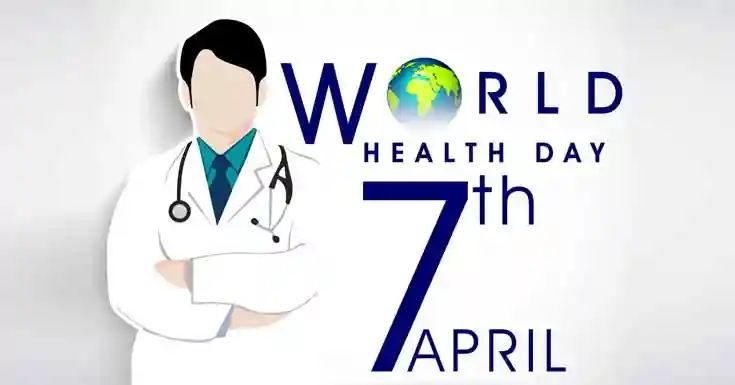
World Health Day is a global health awareness day celebrated every year on 7 April. The theme of World Health Day 2024 is ‘My health, my right’. It is important to look after the Health of every people to make them more Stable and Strong to complete any task easily and quickly. Health is a precious gift and defines complete wellness in our journey in life. “To keep the body in good health is a duty, otherwise we shall not be able to keep our mind strong and clear”. Let’s give a minute to think about your health. Today our workaholic attitudes, negligent eating practices, sedentary lifestyles and continuous stress, tend to make us sensitive to various ailments .It is estimated that over 61 per cent of all deaths in India are due to lifestyle or non-communicable diseases, an alarming statistics that concerns our population. It is now come to light that although India might be a third world country based on socio-economic development parameters, in terms of our lifestyle and health, we have the same morbidity profile of a first world nation. Lifestyle diseases like cardiovascular, diabetes, hypertension, asthma and respiratory as well as cancers are on the rise. Some of these diseases have emerged as more fatal than hereditary and infectious diseases Some Common Lifestyle Disease: Some Tips to Prevent Lifestyle Diseases: At Wockhardt Hospital we place a great emphasis on the value Preventive care as an important speciality as well. The service shifts the focus of health care from treating sickness to maintaining wellness and good health. The preventive health care packages, in the long run save your time and effort in treating major illnesses. The program is designed in ruling out various risk factors and diagnosing abnormalities and is designed to prevent or delay the onset of illness and disease. The centres have various tie up with health care insurance companies, government schemes and third party administrators for easy access to health for check- ups, inpatients services and outpatient services. These assist in providing coverage and various payment options for the patient to avail various health care treatments at Wockhardt Hospital. The health packages in Mumbai at Wockhardt hospital comprise of Basic Health Check-up, Premium Health Check-up and Executive Heath check-up. All our packages have been carefully designed by a team of doctors for evaluation of haematological, lipid profile, systemic profile, cancer profile (kidney, liver, heart) and other diagnostic investigations taking into consideration common disease affecting the Indian scenario. The packages cater to specific age groups and have a battery of recommended tests to choose from. Your complete report is evaluated by our renowned and established consultants for further management. The preventive health care packages are designed encompassing a healthy lifestyle, exercise, diet and physical evaluation and doctors’ advice. Prevention is better than cure cannot be as well emphasised with health check programs at the hospital. To know more about our health check-up packages and how you can avail the same please contact our centres at Wockhardt Hospital.
World Tuberculosis Day: 24 March, 2024
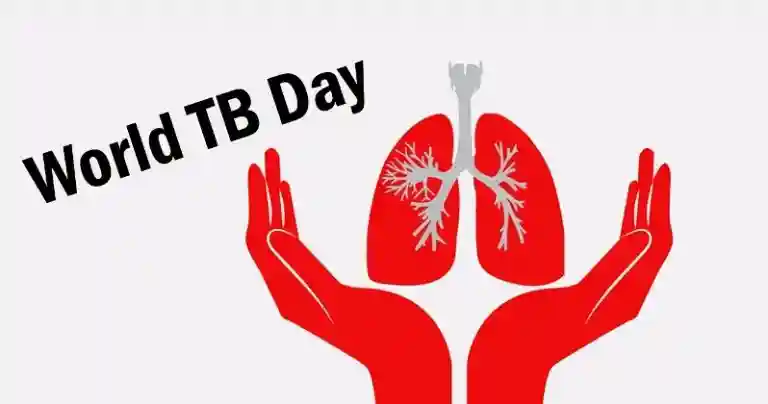
Around 1.7 Million people with Tuberculosis are dying each year. India bears the maximum burden of Tuberculosis in the World, with approximately 800 live , being lost yearly due to this lethal disease. Tuberculosis bacteria spread from one person to another through tiny droplets or aerosols released into the air via coughing and sneezing. It is caused, by an organism called Mycobacterium Tuberculosis. It is a highly infectious disease and has various complications. Primary tuberculosis affects the lungs, also called as pulmonary tuberculosis. Extra-pulmonary tuberculosis occurs when infection occurs in different parts of the body such as kidney, spine, brain, bone, stomach or the lymph nodes. A healthy immune system, can successfully fight TB bacteria at any point. However, when the immunity is weak or has low resistance, it can lead to tuberculosis infection. There are Two Types of Tuberculosis Latent TB and Active TB: Some Signs and Symptoms that Warrant Diagnosis Include: Risk Factors Associated with this Disease Include: People with compromised immune systems are most at risk of developing active tuberculosis. People who are infected with both HIV and TB are more likely to develop active TB than those who do not have HIV People with the following underlying conditions have an increased risk: What are Some Diagnostic Tests: Treatment of Tuberculosis: The treatment usually consists of a combination of TB drugs, (DOTS REGIME) that must be taken for at least six months. The treatment will only be successful if the drugs are taken exactly as required for the entire length of time. The first line TB drugs are: These are the antitubercular drugs that generally have the greatest activity against killing the bacteria. All the other TB drugs are generally referred to as second line TB drugs.The drugs are used in different combinations in different circumstances. Multidrug-resistant TB arises when an antibiotic fails to kill all of the bacteria and has become very prevalent in India and is one of the major obstacle in fighting the disease. If tuberculosis is left untreated, it can also lead to death. Therefore early diagnosis and timely medication is the only way to treat this illness and combat drug resistance. The Respiratory Medicine at Wockhardt hospital provides a world class service in the diagnosis and management of various Respiratory Diseases and Sleep Disorders like Asthma, COPD, Pneumonia, Interstitial Lung Disease, Lung Cancer, and Tuberculosis. For more information on the treatment and diagnosis of tuberculosis contact our centres at Wockhardt Hospitals.
World Autism Awareness Day: 2 April, 2024
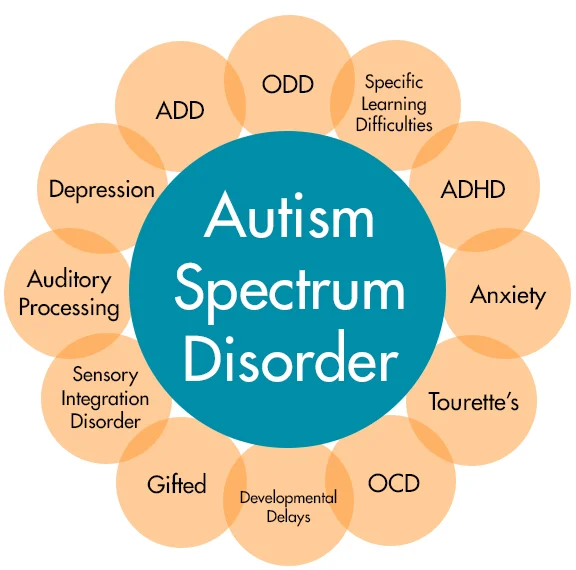
Autism Spectrum Disorder (ASD) is a neuro developmental disorder that manifests in children by the age of three years, with specific delay in social, communicative, cognitive and behavioural abilities. It is approximately four times more common in boys than girls. Autism is currently diagnosed through close observation of a child’s symptoms and development. The learning, thinking and problem solving abilities of children with autism can range from gifted to severely challenged. Different children can be affected in very different ways, but they share two main categories of symptoms: Children with Autism exhibit following characteristics: Role of the parent in Autism Spectrum Disorder and Management: Most important is keeping a healthy lifestyle with consistent routines, the same things that help all children. Here are a few of our recommendations for parents and caretakers: There is no cure for Autism, however early intervention treatment can improve the child’s development. All children with autism need appropriate educational and behavioural therapy. Other therapies include speech therapy, occupational therapy and social skills training .Some children also need medication to help with certain symptoms like trouble focusing or aggressive behaviour. In most situations, behaviour therapy is the best way to help with behaviours. For more information on Autism, its diagnosis and management please contact our Paediatric Neurologist at our centres of Wockhardt Hospitals. At Wockhardt hospitals our team manages and treats children with sensory issues or behavioural issues associated with autism through a supportive integrated approach. Our team of doctors have vast experience in managing all paediatric neurological in dealing with children from birth to young adulthood. Apart from autism we deal with a variety of conditions. Our neurologists deal with children who have seizures, head injuries, or muscle weakness, learning disabilities and attention deficit hyperactivity disorder (ADHD).
Don’t ignore a headache! Consult a Neurologist
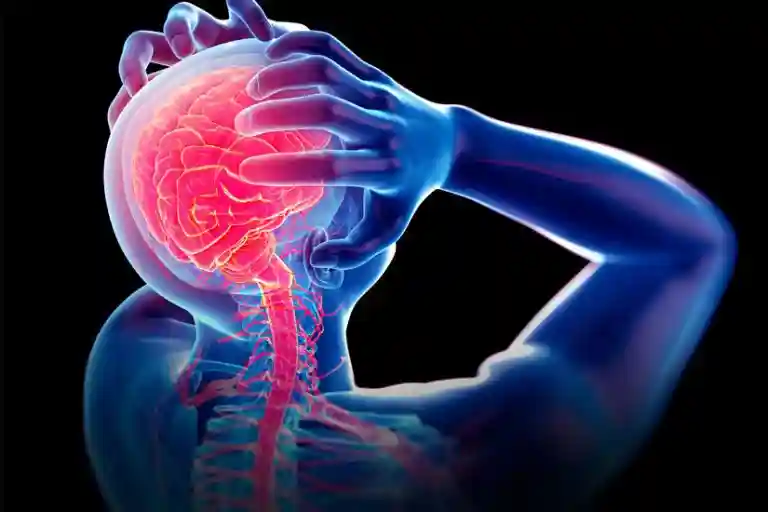
“26-year-old Shweta Nanda, software engineer by profession consulted with Dr. Prashant Makhija, Neurologist at, Wockhardt Hospitals in Mumbai for her frequent headaches. She reported that her headaches started at a much younger age and almost 20-30 minutes prior to the headaches she would notice blurring of vision, subsequently she would start having pulsatile headache. She initially consulted an Ophthalmologist who suggested correction of a minor refractive error but as the headaches persisted she consulted a Physician who attributed it to exam related stress. In the last 3-4 yrs., headaches became more frequent and many a times without “visual warning” and lately she started having analgesics on multiple days in a month. Dr. Makhija found out that Shweta’s neurological examination was within normal limits and all her routine blood investigations as well as repeated brain scans were normal. A detail interview with the patient revealed that what started as infrequent “Migraine with aura” was becoming more frequent and many a times without the “visual auras”. This further transformed over time to “Chronic daily headache”. She was asked to maintain a headache dairy and started on Migraine prophylactics and explained that she may have to continue the medications for a reasonable period of time. She showed remarkable response in three weeks and over time her headaches resolved. Shweta not only regained her confidence at work place but her personal life was also back on track.” There are four major types of headache: vascular, muscle contraction (tension), traction, and inflammatory. The most common type of vascular headache is a migraine A migraine is a severe, painful headache that can be preceded or accompanied by sensory warning signs such as flashes of light, blind spots, tingling in the arms and legs, nausea, vomiting, and increased sensitivity to light and sound. The excruciating pain that migraines bring can last for hours or even days. The typical headache of migraine starts on one side of the head usually around the eye or forehead. A migraine occurs when hyperactive nerve cells send impulses to blood vessels. These blood vessels then constrict, resulting in the release of substances that cause severe pain and discomfort. Migraines differ from a typical headache because they last much longer. Migraine is 2 to 3 times more frequent in women than in men. A person suffering from migraines will always like to relax in the dark and quiet place and most of the times relief can be obtained only when vomiting takes place. Many things can trigger a migraine. These include: • Poor coping life skills • Anxiety or Stress – related to exams, Deadline, work related, interpersonal, family etc. • Travel • Lack of food Lack of sleep or sleeping more than usual • Exposure to bright sunlight • Hormonal changes (in women)- premenstrual migraine • Certain food like cheese, banana, curds, coffee Treatment is definitely required and it is best to see a Neurologist to determine the type and cause of headache. Management of Primary headache disorder in general involves a combination of lifestyle modification, judicious use of analgesics and prophylactics medications if the patient is having frequent Migraine headaches. While management of Secondary headache, apart from symptomatic management with analgesics, is directed towards treating the underlying brain disorder. Most of the time, a headache is self- treated and isn’t properly clinically diagnosed. This causes a longer diagnosis period, making treatment difficult. In India, headaches are underestimated, under-recognised and under-treated. To know more about headache and diagnosis please consult our neurology department at Wockhardt Hospital. The Neurosciences department at Wockhardt Hospitals is well-equipped to take care of patients with complex neurological and neurosurgical problems. In particular, our focus areas are stroke, migraine, Parkinson’s disease and other movement disorders, Epilepsy, vascular malformations and brain/spinal cord tumours. Our renowned team of neurologists evaluate all neurological disorders and have been successful in treating various conditions at the hospital
All you need to know about Minimal Invasive Cardiac Surgery
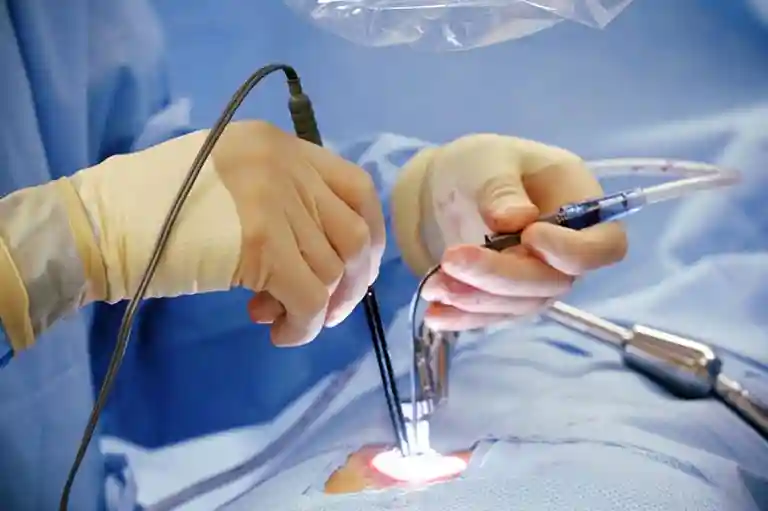
What is Minimal Invasive Cardiac Surgery (MICAS)? Minimally invasive heart surgery (also called keyhole surgery) is a newer form of cardiac surgery. In this type of heart surgery, small incisions are done, without dividing the central breastbone or sternum. That means instead of “cutting open the chest” from midline as they do with traditional open heart surgery, a small and cosmetic incisions using specialized instruments is used for procedure. How is the procedure carried out? MICS procedure is carried out through a small 5 cm incision on the side of the chest (mini thoracotomy) without damaging any bones. In females, the incision is under the breast fold making it even more cosmetic. Is MICAS CABG a beating heart operation? Yes, it is an off pump or beating heart operation. The support of a pump may rarely be required but the operation is still performed on the beating heart. Pump support may particularly be used when the heart is weak. What are the Common Indications of the MICAS? : How does it differ from conventional cardiac surgery? What are the contraindications for the surgery? What are the benefits of MININMAL INVASIVE cardiac surgery? What is the risk of infections after MICAS CABG? The risk of infection is close to zero. All infections are reduced dramatically in MICS CABG even in diabetics. It is due to the fact that the incision is small and no bone is fractured. What are the precautions I would have to take after MICS? After minimally invasive heart surgery, you may have an improved quality of life and reduced symptoms. To know more about Minimal Invasive Cardiac Surgery please Visit us at Wockhardt Hospitals in Mira Road Understand all your cardiac conditions with our experienced cardiac surgeons. Dr. Manish Hinduja M.S., M.Ch.(CTVS), D.N.B.(CTS) is a an internationally acclaimed Cardio Thoracic & Vascular Surgeon working as Full Time Consultant at Wockhardt Hospitals, Mira Road. He has over 9 years of experience and has operated more than 5000 cases in his field. He specialises in Minimal Invasive Cardiac Surgery at the hospital.
Importance of Allergy Testing
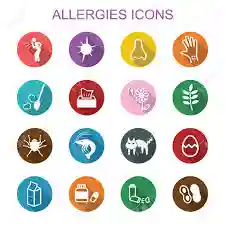
What is an allergy? Allergy occurs when a person’s immune system reacts to substances in the environment that are harmless for most people. What happens when you have an allergic reaction? When a person who is allergic to a particular allergen comes into contact with it, an allergic reaction occurs. This begins when the allergen (for example, dust mite) enters the body, triggering an antibody response. The antibodies attach themselves to special cells, called mast cells. When the dust comes into contact with the antibodies, the mast cells respond by releasing certain substances, one of which is called histamine. When the release of histamine is due to an allergen, it can result it in swelling and inflammation and multiple reactions can take place depending upon the allergen. Allergic reactions are determined on the exposure duration of the allergen, stress factor, nutrition level and genetic make-up of the individual. What are the common reactions of the body to an allergen? What are some uncommon allergic reactions? What are the different types of allergy? What some uncommon allergies? Can allergies cause complications? Anaphylaxis is a serious, potentially life-threatening allergic response that is marked by swelling, hives, lowered blood pressure, and dilated blood vessels. In severe cases, a person will go into shock. If anaphylactic shock isn’t treated immediately, it can be fatal. What is allergy testing? Finding out what you are allergic to is an important first step to effective allergy treatment. When combined with a detailed medical history, allergy testing can identify the specific things that trigger your allergic reactions. Allergy blood tests detect and measure the amount of allergen-specific antibodies. When you come into contact with an allergy trigger, known as an allergen, your body makes antibodies against it. Immunoglobulin E (IgE) in your blood is a very specific antibody that is secreted during an allergic reaction. These antibodies appear in human serum and plasma as a result of sensitization to a specific allergen and can be a determiner in measuring the allergy. Allergy blood tests usually screen for most common allergy triggers, including dust, pet dander, trees, grasses, weeds, and molds and even food allergies . To know more about allergy and allergy testing, please contact Wockhardt Hospital.
Lifestyle diseases in India & Preventive Health Care in Wockhardt Hospitals
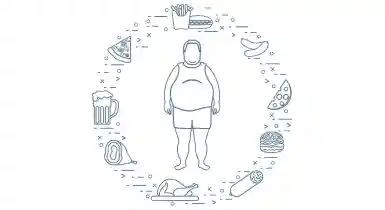
It is estimated that over 61 per cent of all deaths in India are due to lifestyle or non-communicable diseases, an alarming statistics that concerns our population. Lifestyle diseases like cardiovascular, diabetes, hypertension, asthma and respiratory as well as cancers are on the rise. Some of these diseases have emerged as more fatal than hereditary and infectious diseases It is now come to light that although India might be a third world country based on socio-economic development parameters, in terms of our lifestyle and health, we have the same morbidity profile of a first world nation. Let’s take a look at some common lifestyle disease and WHO stats for the same:
10 Common Health Concerns in Your 40s

40 is a milestone when the risk of many health conditions increases. Here are some health concerns that you may find yourself faced with in your 40s: 1) Chronic pain—the risk for arthritis, back pain and other painful conditions like tendonitis and, spondylitis, increases with age. 2) Cardiovascular disease- Blood pressure, cholesterol, triglycerides and homocysteine levels, our some indicators of your heart which slowly creep upward as you get older, increasing your risk for several serious medical conditions, including heart attack and stroke. 3) Diabetes is a significant health problem in and risk for type 2 diabetes (the most common form of the disease) increases with age 4) Osteoporosis—Peak bone mass (maximum bone density and strength) gradually declines in your 40s and beyond, increasing your risk for osteoporosis—bone loss that can lead to fractures and other problems. After menopause, women are at even higher risk for this condition. A healthy diet and regular weight-bearing exercise, including strength training, can help prevent osteoporosis. 5) Anxiety and depression—it’s important to take care of your mental health in your 40s. Changes in mood are a normal part of life, but extreme anxiety, loss of interest and energy, an inability to experience pleasure, withdrawal from usual activities and interactions, and apathy toward important matters is not. 6) Skin problems—adult acne, sun damage, age spots and wrinkles—often concerns for 40-somethings. 7) Sexual and reproductive health is an important part of overall health in your 40s. Common issues include sexual dysfunction (e.g., female sexual dysfunction, erectile dysfunction), sexually transmitted diseases (STDs) and infections (STIs) including HIV/AIDS, and contraception. 8) Urinary incontinence, overactive bladder and digestive problems, including ulcers, are other conditions that are more common in people over the age of 40. 9) Hormonal changes including perimenopause in women is a common occurrence and brings it with both physiological changes in women and psychological. In the same way men may experience symptoms of testosterone deficiency, benign prostatic hyperplasia (BPH, enlarged prostate) or transient erectile dysfunction. 10) Changes in vision and hearing loss are also relatively common problems for people in their 40s. Preventive health care and screening is essential during this time to rule out any underlying health concerns or to alert oneself of the same. At Wockhardt Hospital we place a great emphasis on the value Preventive care as an important speciality as well. The service shifts the focus of health care from treating sickness to maintaining wellness and good health. The program is designed in ruling out various risk factors and diagnosing abnormalities and is designed to prevent or delay the onset of illness and disease. Most people younger than 40 years of age are generally free from diseases that could be diagnosed by physical examination alone. In this age group, health problems usually show specific signs or symptoms that would prompt you to seek medical attention It is now recommended that medical check-ups be referred to as Periodic Health Assessments or Examinations and they be performed every five years (for adults over 18) until age 40 and every one to three years thereafter. The requirements are for more frequent evaluations for those taking prescription and medications. The health packages in Mumbai at Wockhardt hospital comprise of Basic Health Check-up, Premium Health Check-up and Executive Heath check-up. All our packages have been carefully designed by a team of doctors for evaluation of haematological, lipid profile, systemic profile, cancer profile (kidney, liver, heart) and other diagnostic investigations taking into consideration common disease affecting the Indian scenario. The packages cater to specific age groups and have a battery of recommended tests to choose from. Your complete report is evaluated by our renowned and established consultants for further management. The preventive health care packages are designed encompassing a healthy lifestyle, exercise, diet and physical evaluation and doctors’ advice. Prevention is better than cure cannot be as well emphasised with health check programs at the hospital. To know more about our health checkup packages and how you can avail the same please contact our centres at Wockhardt Hospital.














